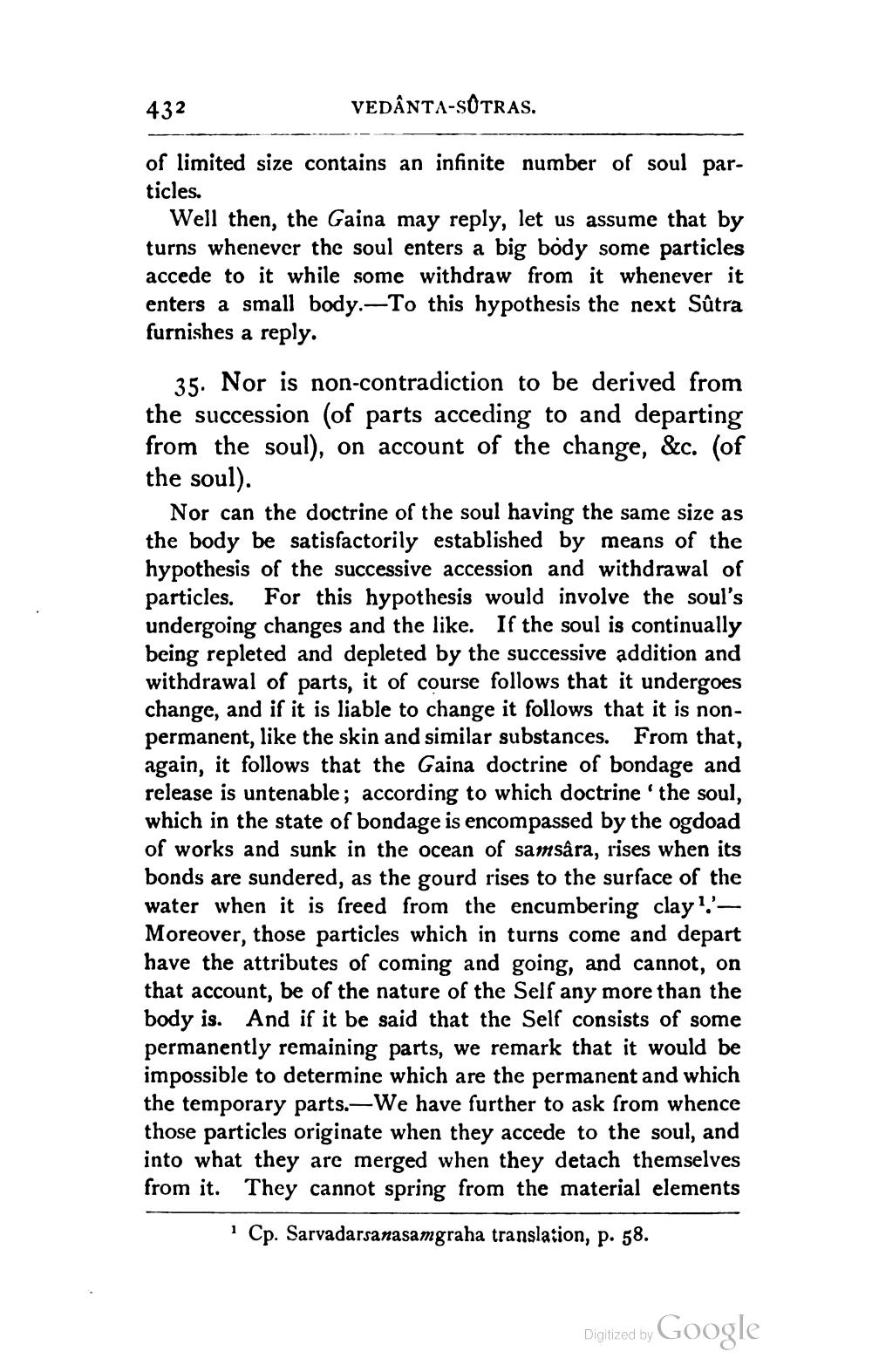________________
432
VEDÂNTA-SOTRAS.
of limited size contains an infinite number of soul particles.
Well then, the Gaina may reply, let us assume that by turns whenever the soul enters a big body some particles accede to it while some withdraw from it whenever it enters a small body.—To this hypothesis the next Sûtra furnishes a reply.
35. Nor is non-contradiction to be derived from the succession (of parts acceding to and departing from the soul), on account of the change, &c. (of the soul).
Nor can the doctrine of the soul having the same size as the body be satisfactorily established by means of the hypothesis of the successive accession and withdrawal of particles. For this hypothesis would involve the soul's undergoing changes and the like. If the soul is continually being repleted and depleted by the successive addition and withdrawal of parts, it of course follows that it undergoes change, and if it is liable to change it follows that it is nonpermanent, like the skin and similar substances. From that, again, it follows that the Gaina doctrine of bondage and release is untenable; according to which doctrine the soul, which in the state of bondage is encompassed by the ogdoad of works and sunk in the ocean of samsâra, rises when its bonds are sundered, as the gourd rises to the surface of the water when it is freed from the encumbering clay?'— Moreover, those particles which in turns come and depart have the attributes of coming and going, and cannot, on that account, be of the nature of the Self any more than the body is. And if it be said that the Self consists of some permanently remaining parts, we remark that it would be impossible to determine which are the permanent and which the temporary parts.-We have further to ask from whence those particles originate when they accede to the soul, and into what they are merged when they detach themselves from it. They cannot spring from the material elements
1 Cp. Sarvadarsanasamgraha translation, p. 58.
Digitized by Google
Digitized by




